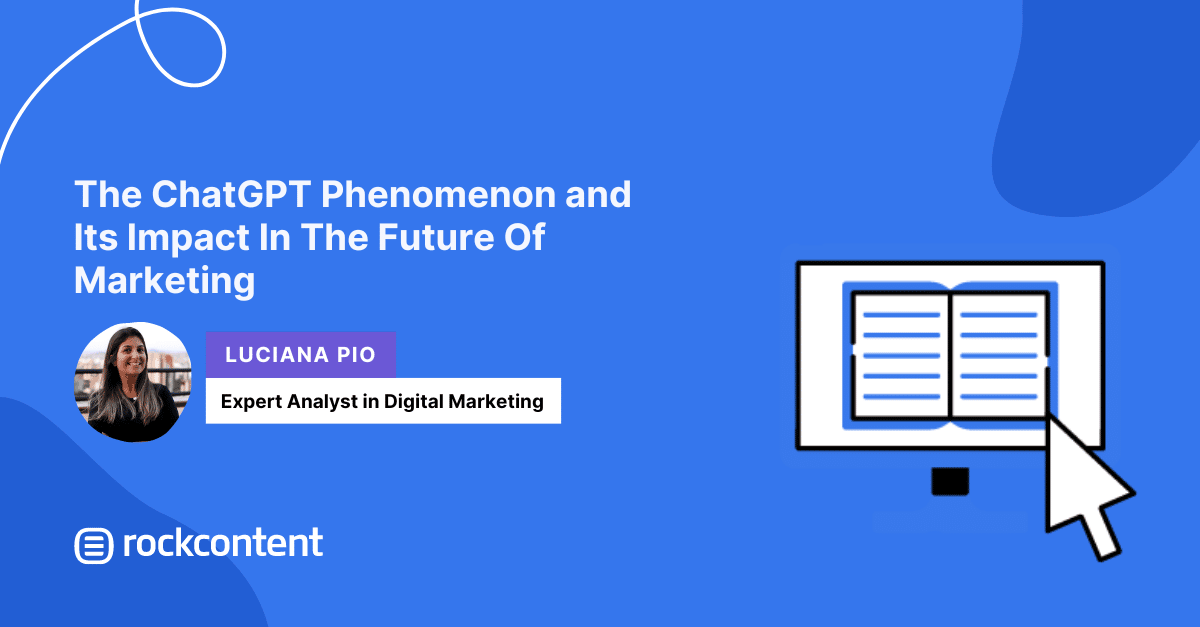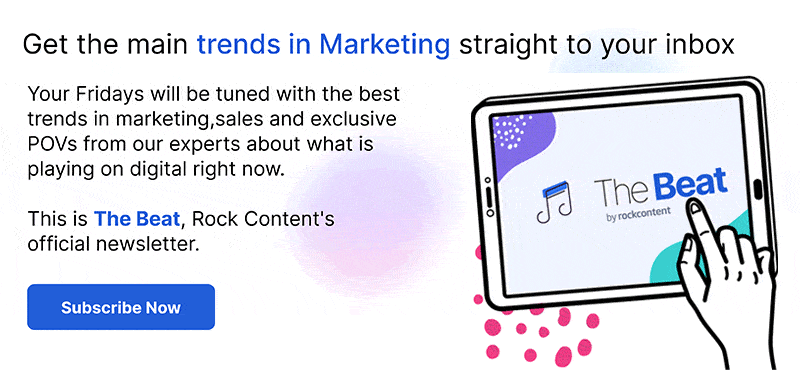No products in the cart.
Content Marketing
The ChatGPT Phenomenon and Its Impression In The Future Of Marketing
Over the last few months, AI has been overwhelming the web due to significant launches around it. Everywhere there are many recent happenings in AI across many different areas (marketing, science, security, etc.), opening doors to an uncertain future in which many of us feel a little uncomfortable with so many tools replacing human activities.
Speaking more specifically of tools related to the areas of journalism and marketing, which are on top of the list, there are many newbies such as:
- “Magic Avatar” by Lensa (launch date: November 2022): an AI-generated digital self-portrait that has been a huge trend over the last few days on social media platforms, where a million users are sharing their many different avatar versions.
- Lex by Every (launch date: October 2022): an AI writing assistant which can develop huge amounts of content because of its advanced skills through artificial intelligence. In that regard, last month I wrote an article about AI writing assistants.
- Alongside Lex, last week Canva launched an open beta version of Canva Docs with an AI-writer feature called “Magic Write” that it promises “can generate entire articles, blogs, and essays; brainstorm ideas for lists, outlines, and topics”.
And around that, another new feature released some days ago has people divided over the limits (or lack thereof) of AI. This is ChatGPT by Open AI. Let’s see more about it!
What is ChatGPT and why is everybody talking about it?
ChatGPT is a new chatbot that was launched a week ago by OpenAI, an AI research and deployment company that had as one of its founders non-other than Elon Musk.
This is an evolution of other already existing OpenAI technologies. The company refers to as GPTs the Generative Pre-Trained Transformer technology, which means the technology was trained by using Reinforcement Learning from Human Feedback (RLHF).
In this training, humans provided conversations playing on both sides (user and AI assistant) and their rank and feedback were collected to improve the responses. Now OpenAI is confident that ChatGPT can evolve even more with the user’s feedback as well.
But what are the experts making of all this?
Benj Edwards, a tech journalist (The Atlantic, PCWorld, Macworld, PCMag, How-To Geek, and FastCompany) and AI and Machine Learning Reporter for Ars Technica says on Twitter “For now, it’s possible that OpenAI invented history’s most convincing, knowledgeable, and dangerous liar— a superhuman fiction machine that could be used to influence masses or alter history.” However, he also agreed that OpenAI launched the tool well, and carefully.
The Guardian believes that this intelligence can generate unemployment in a few years. Especially for professionals like professors, programmers, and journalists. ChatGPT amazed specialists with its writing ability and proficiency in complex tasks.
The Guardian even mentions in this article an experience they had before with a previous GPT from the same OpenAI family. At that time they were surprised about an opinion piece for them. And ChatGPT is even more intelligent.
What are the opportunities and alerts to be aware of regarding ChatGPT?
In the first days of its launch, ChatGPT gained more than one million users. But, when we think about Marketing, for example, even though we have already seen the tool’s power to provide strong brainstorming ideas for any kind of content, it’s still far from being perfect.
As with all the other AI technologies, there is an equal amount of praise being given for the good opportunities that it creates, as criticism for the possible misinformation and mistakes.
Billy Perrigo, a journalist covering tech at Time, “interviewed” the ChatGPT robotand the tool “answered” some questions that reinforce its limitations and how people could adapt to this technology with regards to being conscient about the way they’ll take advantage of it.
ChatGPT also admits some risks involving itself and gives some advice to the users. Finally, at the end of the interview, he responded to a question about the worries related to possible unemployment. ChatGPT “says”:
“Develop new skills and competencies. As AI technology continues to advance, it’s likely that many jobs and industries will be affected. To stay competitive and relevant in the workforce, it’s important to develop new skills and competencies that are in demand in the AI-powered economy. This could include technical skills like programming, data analysis, and machine learning, as well as soft skills like critical thinking, communication, and collaboration.” (time)
On the other hand, like other writing assistance tools already mentioned, ChatGPT can be very useful for Marketing, especially when it comes to producing content. And just as in the case of other similar tools, in my opinion, it should be used as a facilitator and not as a producer.
It’s not new that Google has been working for years to learn to detect content developed exclusively by AI and has become increasingly efficient at “cracking” even those with advanced detection blocking programs.
And honestly, I find it hard for seasoned professionals to be willing to leave everything to AI, at the risk of getting a manual action from Google, don’t you?
And, in the case of ChatGPT, if that were the intention, it would be very easy to make them give up because the tool has some very clear limitations, such as
- The tool needs 100% detailed inputs, with clarity about the question that is presented.
- The information base of its algorithm is not updated in real time. This means that any answer it gives you will be based on intentional biases “imputed” on its intelligence, and the last input occurred in 2021.
In addition to knowing how to “block” illicit content, OpenAI developed an encrypted watermarking capable of helping to detect content generated by OpenAI technology and this includes ChatGPT. If it isn’t already updated, probably the new version should come with this functionality.
So, the point is to explore the advantages to make your routine more productive with that “little help” that every content producer needs, especially on creative block days (who has never faced this?). A smart way to use it as a helpful partner is to set up the questions, and use its responses as inspiration.


